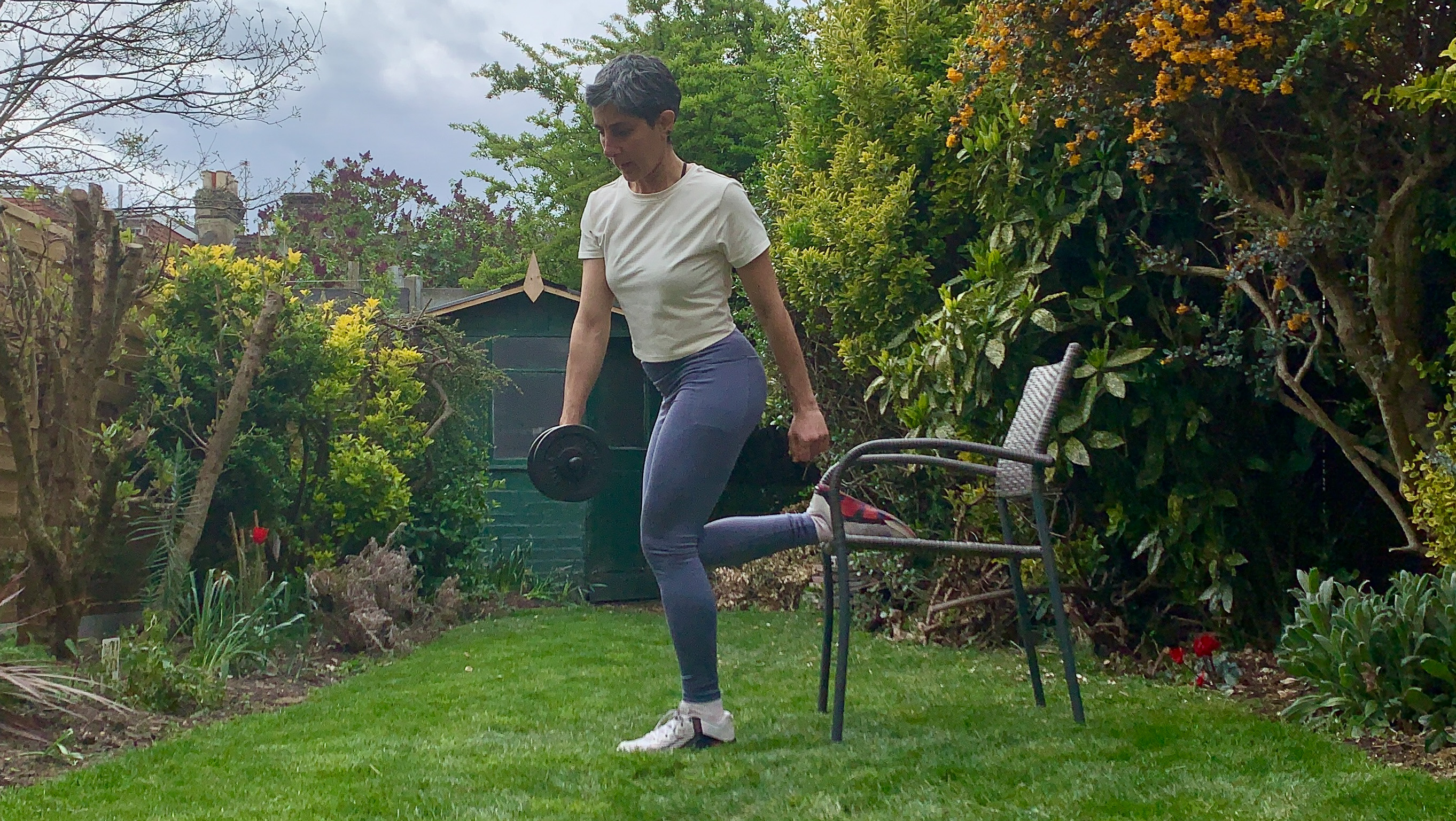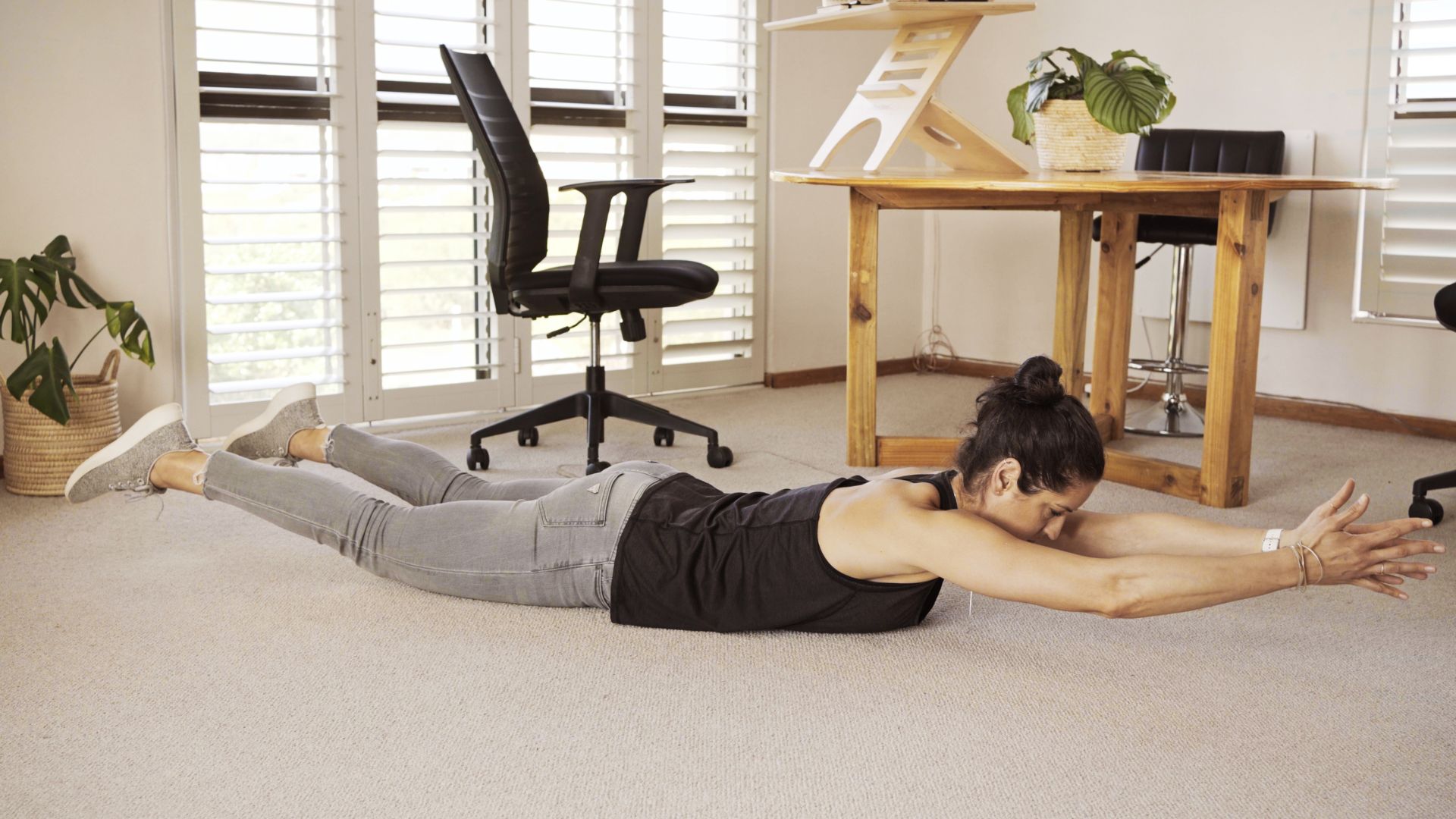How to build mental endurance during lockdown – top tips from experts
These top tips from metal health expert Claire Dale and Patricia Peyton help build endurance

It's been a long hard slog with mental health during lockdown – and we're not out of the woods yet. Here we speak to mental health experts Claire Dale and Patricia Peyton about how best to navigate the "new normal".
“To quote a popular pandemic saying: ‘We’re all in the same storm, but we’re not all in the same boat.’ Similarly, I would add that we are all in a collective ‘endurance tunnel’ but our journey through that tunnel is unique to each of us.
- How meditation changed my life: One writer reveals all
- Is too much screen time messing with your mind?
“While we’re often in the same ‘boat’ as our immediate family members (those with whom we are living), we are not necessarily in the same endurance tunnel. For example, even though my husband and I are sharing the same ‘boat,’ my journey through the pandemic endurance tunnel is one of much longer hours, heavier workloads and endless juggling of priorities,” says Patricia.
While we’re often in the same ‘boat’ as our immediate family members, we are not necessarily in the same endurance tunnel.
“While his is one of significantly more downtime, household tasks, boredom, and even loneliness – because he is picking up my slack around the house and spending the majority of each day alone while I’m sequestered in my home office.
“I have friends whose endurance tunnels include living alone while grieving the loss of a parent to the virus and others in cramped quarters wondering how they will continue to provide for their families. Consider the difference in the endurance tunnel for a financially secure medical professional working in an overrun hospital versus that of an out-of-work single mother…
“As different as these journeys are, they all require endurance - a key element of physical intelligence (the ability to detect and actively manage the balance of chemicals in our brains so we can achieve more, experience less stress and live more happily). While the term ‘physical intelligence’ may be unfamiliar, these techniques have been used for decades by athletes and artists and are well supported by neuroscience.
“In terms of physical intelligence, endurance is about mental toughness, determination, perseverance and planning, having a strategy for sustaining effort during difficult times and maintaining peak performance over the long haul.
Get the Fit&Well Newsletter
Start your week with achievable workout ideas, health tips and wellbeing advice in your inbox.
Endurance is about mental toughness, determination, perseverance and planning, having a strategy for sustaining effort during difficult times.
“Dopamine (our pleasure/reward chemical) and DHEA (our vitality chemical) underpin endurance. Dopamine makes us determined because we are drawn to a reward that we perceive in the future, whatever that may be (e.g. job satisfaction, money, a sense of achievement, feeling alive, surviving adversity), while DHEA gives us lasting energy reserves that power us steadily forwards, like the engines of a huge ship progressing through deep water."
“There are various physical intelligence techniques we can adopt for enhanced endurance, designed to help us with different types of endurance-related challenges.
Seeing the long game, muscle firming and milestones
To help you focus and propel yourself forward, visualise clearly what you are working to achieve and create a timeline. Find an action and words that spur you on when things are difficult, such as clenching your fists and saying: “You can do this!”
Muscle-firming gives us willpower and the ability to withstand immediate pain in order to attend to essential priorities – provided that we believe that doing so will produce long- term benefits.
Create and visualise milestones and imagine celebrating the achievement. Use a literal timeline with milestones to plan projects and physically walk through the timeline toward your goal.
Sleep
Sleep has a bigger impact on brain function than any waking activity – there is no more powerful brain enhancer. When we sleep, we consolidate memories and experiences, detox the brain of waste products and regenerate brain cells and the body.
This makes a profound difference to our daily performance, enabling us to think clearly and deeply, focus well and handle multiple challenges with ease. Focus on quantity (ideally seven hours minimum) and quality (specifically, the amount of time spent in deep and REM sleep).
Breaking through the pain barrier
We have a complex neural mechanism called a ‘central governor’, part of our survival system that keeps us from harm. When we feel pain or fatigue, that central governor makes us want to stop the activity that is causing it.
However, the central governor is very cautious. It kicks in early, well before we need to fear negative consequences. That means our bodies can go beyond what our brains are telling us. This thought alone will help you push yourself (within reason) when you need or want to do so.
Energy gain
Depending on demand, energy is generated in every cell by hundreds of mitochondria that create and release energy using oxygen and food – like mini rechargeable batteries for our cells. Endurance and strength training increase mitochondria biogenesis, enabling muscles to produce more energy.
We also can boost our energy by turning the water to cold for 30 seconds at the end of a shower, or by using this breathing technique:
Clear the nose by blowing it.
Breathe in and out strongly through the nose, increasing speed until you are breathing as quickly as you can for as long as you can up to one minute.
Use diaphragmatic breathing – belly goes out on the in- breath and in on the out- breath – otherwise you will feel light- headed and dizzy, i.e. you will over-breathe.
SMILE while you breathe to get a serotonin/endorphin boost.
After this type of breathing, you may feel tingly, even a bit light-headed. You have flooded your body and brain with oxygen, feeding the mitochondria and releasing energy.
Life is a balancing act of effort and recovery. After pushing ourselves hard, we should allocate time for rest and recovery before we apply effort again.
Motivation
We all feel most motivated when our task aligns with our values, but some mundane tasks and processes – things that have to be done – may appear to not be aligned with any value. Don’t underestimate them; instead, reframe how you think about them.
For example, completing the yearly accounts could be driven by the value of orderliness or responsibility. Caring for an ageing parent could be driven by the value of giving back. Either way, those values motivate us through the challenge.
Aligning actions with values puts us in a ‘towards’ state driven by intrinsic reward rather than punishment and boosts dopamine levels and motivation. Apply a positive mindset to that task you’ve been procrastinating over and you’ll find the motivation to finish it.
Appreciation
Appreciation is a powerful motivator. This includes self-appreciation and gratitude for what we have.
When we are fatigued from continued adversarial conditions, appreciation is a fantastic way to boost our feel-good chemicals (dopamine, oxytocin and serotonin) and raise energy levels.
What can you be grateful for and whom can you appreciate today?
Instead of continuing to express concern about difficulties, see where someone is making an effort and acknowledge it by showing appreciation for it. In particular, appreciate behaviour that will be helpful in moving things forwards. We are much more likely to repeat behaviour when we have been appreciated for it. What can you be grateful for and whom can you appreciate today?
“Habit stack the techniques that resonate for you into your day by attaching them to something else you already always do, and this will enable you to turn the technique into a new habit that will help you weather this storm regardless of which type of boat you are in or which challenges you encounter on your journey.”
Launched in 2020, Fit&Well.com is all about helping you meet your health and fitness goals in ways that are fun and achievable. With news and features on fitness, weight loss, running, nutrition, yoga, wellness and more, we're committed to helping you wherever you are on your fitness journey. We break down the best fitness tech, with reviews, buying guides and the latest deals on fitness and wellness kit, from dumbbells to diffusers.
We cater for all difficulty levels here. It doesn't matter if you're a beginner in the world of fitness or you're gearing up for your tenth marathon: we're all moving towards the same goal – creating a healthier, happier you. From guides on getting started doing walks around the block, to creating the perfect work-from-home space, to eating to fuel your first triathlon. It's all here.
-
 I swapped my usual core routine for this dumbbell workout—here’s why you should try it too
I swapped my usual core routine for this dumbbell workout—here’s why you should try it tooPick up some dumbbells and try my favorite deep core exercises
By Yanar Alkayat
-
 You don't need any equipment to improve your posture—just these three back-strengthening moves
You don't need any equipment to improve your posture—just these three back-strengthening movesThese three exercises will strengthen key back muscles
By Jennifer Rizzuto
